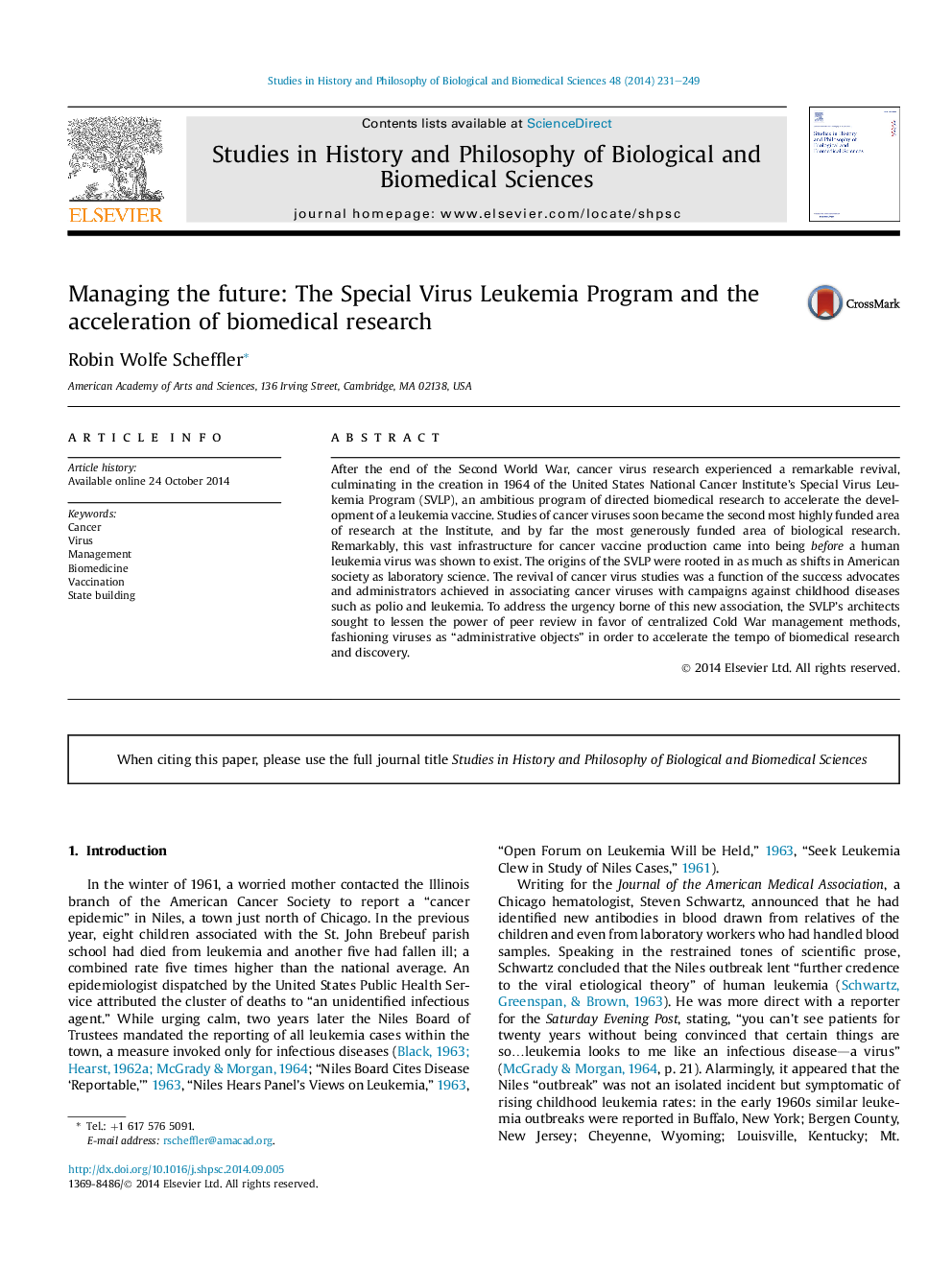| Article ID | Journal | Published Year | Pages | File Type |
|---|---|---|---|---|
| 7552450 | Studies in History and Philosophy of Science Part C: Studies in History and Philosophy of Biological and Biomedical Sciences | 2014 | 19 Pages |
Abstract
After the end of the Second World War, cancer virus research experienced a remarkable revival, culminating in the creation in 1964 of the United States National Cancer Institute's Special Virus Leukemia Program (SVLP), an ambitious program of directed biomedical research to accelerate the development of a leukemia vaccine. Studies of cancer viruses soon became the second most highly funded area of research at the Institute, and by far the most generously funded area of biological research. Remarkably, this vast infrastructure for cancer vaccine production came into being before a human leukemia virus was shown to exist. The origins of the SVLP were rooted in as much as shifts in American society as laboratory science. The revival of cancer virus studies was a function of the success advocates and administrators achieved in associating cancer viruses with campaigns against childhood diseases such as polio and leukemia. To address the urgency borne of this new association, the SVLP's architects sought to lessen the power of peer review in favor of centralized Cold War management methods, fashioning viruses as “administrative objects” in order to accelerate the tempo of biomedical research and discovery.
Related Topics
Life Sciences
Agricultural and Biological Sciences
Agricultural and Biological Sciences (General)
Authors
Robin Wolfe Scheffler,
